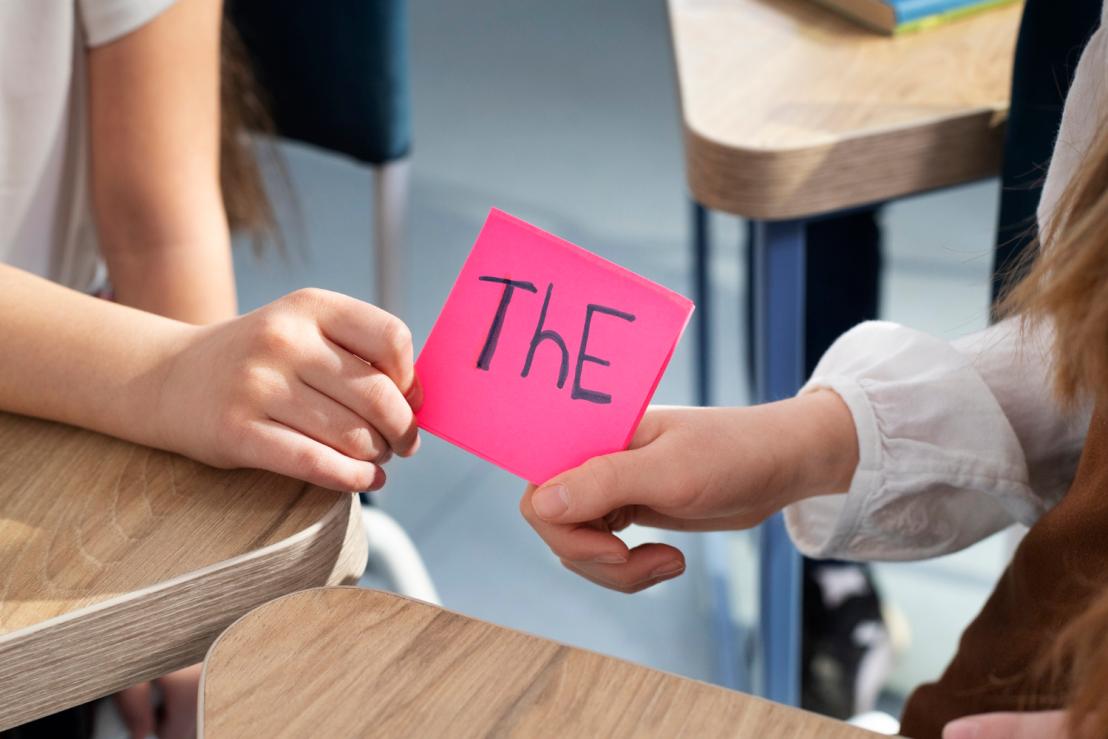Modal verbs in English
6 Mar, 2023

Among the most obscure parts of speech in English is the article. It can perhaps be attributed to particles, but only by a few percent. The article has several features, for example: it is placed only before nouns, defines only countable nouns, indicates, most often, that the noun is in the singular.
In English, there are two types of articles: definite and indefinite, and they are used in their own way.
Use
The article can be found in almost every English sentence. Their use is directly related to your level of English, so they can be called a kind of indicator. The use of the article in English depends on several factors. In more scientific terms, the article is a part of speech that helps express the certainty or indefiniteness of the subject. There are several articles in English. Basically, the article is placed before singular nouns, but there are several other features of the use of articles. Let's figure it out together.
So let's start with the indefinite article. It is of two types - a / an. The use of each of them depends on which letter the noun begins with. If the noun begins with a consonant, we put the article a, if it starts with a vowel, an. A catch that can jump out from behind a corner is an adjective used in a phrase with a noun. In this case, we will look at the first letter of the adjective that defines the noun.
When put a / an
This article is called the indefinite article. It is mainly used before nouns, indicating their singular. But that's not all. So, the indefinite article will be used in the following cases:
I didn't know he had a dog.
Do you want a glass of water?
My best friend is a musician.
She said she is a nurse at a local hospital.
You know, Johnathan is a vegan.
Her best friend is an EMO, can you imagine this?
I am a biker. I have a great motorcycle.
She's a Korean. We've been friends for a long time.
She's such a bookworm.
He's just an idiot, nothing more.
Easter is on Wednesday next day.
I bought a beautiful dress yesterday.
My mom killed a spider yesterday.
I had an apple for breakfast.
There is a really nice restaurant near here. We must go there.
Please give me a hundred dollars.
I'll be there in an hour. Wait for me.
A salt and pepper. - Salt and pepper.
A knife and fork. - Knife and fork.
You are such a good friend! So supportive!
A lot of.
A little bit
To have a look
It is a pity
etc.
When we use “the”
The general rule for using the definite article is
- mention of a specific subject or object
Can you close the door? It's noisy. - Can you close the door? Noisy.
Where's the kitchen? - Where is the kitchen? (specific cuisine)
- mentioning the word a second and subsequent times in the same conversation
- geographical names (seas, rivers, oceans, parts of the world, mountain ranges, etc.)
Among the special cases of the use of the definite article, the following stand out:
- the article is placed before singular and exceptional objects
the sun
The environment
- The definite article is used in the formation of the superlative degree of adjectives in combination with a noun
The most interesting story
The tallest building of this area
The biggest eyes I've ever seen
- To describe a class, a group of objects, the construction article + noun in the singular is used
The husky is a very clumsy breed.
The government should let young people speak.
- When referring to a group of people who are similar in common, the article + adjective construction is used
The poor
The homeless
- If we talk about the whole family as one big group, calling her last name
The Jones are really good people. The Joneses are really good people.
- With names of buildings, newspapers, sports events, historical periods
The times, The Empire state building, The Renaissance, etc.
Article choice
In order to be able to choose the correct article, it is not necessary to memorize all cases of use, for a start it will be enough to learn a few basic rules.
First, if the word (noun) is mentioned in the conversation for the first time, then the indefinite article will be used.
Secondly, if you use the same noun a second time in the same conversation, then it will be preceded by a definite article. So the interlocutors will understand that you are talking about what has already been mentioned earlier.
Thirdly, the definite article is most often needed when certain objects or places6 are mentioned that have their own uniqueness.
Zero article
Simply put, this is the complete absence of any article, but the scientific community decided to single it out as such a category as the zero article.
So, the article is not put:
- with possessive pronouns
He is my cat.
This is my favorite book.
- abstract noun
He loves music so much, so he's taking piano lessons.
- names of states, with the exception of those whose names include the words kingdom states and lands
Didn't you live in France two years ago?
The United Kingdom is a very old country.
- City names (exception - The Hague)
Moscow has its own charm for tourists.
The Hague is a city in the Netherlands.
We have tried to describe the use of articles in English as clearly as possible and sincerely hope that this will help you in your studies.